Dental implants are an innovative dental procedure that aims at replacing the roots of the missing tooth. The artificial tooth root is placed in the jawbone and serves as the base of support for an artificial tooth. A dental implant can replace a single tooth or several teeth. To achieve this, the dentist inserts a titanium post into the jawbone and allowing it to fuse with the bone over time. It creates a stable base for artificial teeth, making them feel natural and comfortable.
Dental implants are necessary in case of missing teeth or tooth decay that causes extraction. They are an ideal solution that provides permanent support to the artificial teeth. The implant procedure is relatively simple but requires a few visits to the dentist. During the first visit, the dentist evaluates the dental situation, takes X-rays, and creates a treatment plan. The implant post is placed in the jawbone during the second visit. It typically takes a few months for the jawbone to fuse with the implant. After that, the dentist can attach the crown or bridge to the artificial tooth root.
One of the significant advantages of dental implants is their longevity. They are designed to last up to 20 years with proper care and maintenance.
The implant surgery is also safe, and it has a success rate of 98%. Furthermore, dental implants provide a comfortable and natural-appearing solution for missing teeth.
Another admirable aspect of dental implants is their functionality. They are reliable, efficient, and have enhanced functionality as compared to other dental restoration options. Implants are an excellent choice for individuals who have lost their teeth due to injury, decay, or any other reason. Moreover, dental implants do not compromise or interfere with speech or the ability to chew food properly.
Despite the benefits, dental implants may have some drawbacks. They can be expensive, especially when compared to traditional bridges or dentures. The procedure may require sedation, which can increase the cost further. Also, not all patients may be the right candidates for implants. For instance, individuals with weak jawbone or who are smokers may not be suitable candidates for the procedure.
Advantages of Dental Implants
One of the significant benefits of dental implants is their longevity. They are designed to last up to 20 years, and with proper care and maintenance, they can last even longer. Moreover, dental implants help in preserving the jawbone structure and so , preventing dental issues that are often caused by bone loss. The implant surgery is also safe, and it has a success rate of 98%. Furthermore, dental implants provide a comfortable and natural-appearing solution for missing teeth. Dental Implants function, look and feel like natural teeth.
1. Improved appearance: Dental implants are designed to look, feel, and function like natural teeth, which can improve the appearance and confidence of individuals who have missing or damaged teeth.
2. Improved comfort and function: Unlike dentures or bridges, dental implants are firmly anchored into the jawbone, providing support and stability to the surrounding teeth. They allow patients to chew, speak, and smile with confidence.
3. Long-lasting: Dental implants are designed to be a permanent solution to tooth loss. With proper care, they can last a lifetime.
4. Maintenance of facial structure: Tooth loss can lead to bone loss, which can cause the face to sag and appear older. Dental implants stimulate the jawbone, preventing bone loss and helping to maintain the structure of the face.
5. No damage to adjacent teeth: Unlike other tooth replacement options such as bridges, dental implants do not require the adjacent teeth to be ground down or altered in any way.
6. Improved oral health: Dental implants do not require special cleaning techniques or solutions, and they do not decay like natural teeth. This makes it easier to maintain optimum oral health.
Overall, dental implants provide a durable, permanent solution for missing or damaged teeth that can improve function, appearance, and oral health.
Disadvantages of Dental Implants
Dental implants may have some drawbacks. They can be expensive, especially when compared to traditional bridges or dentures. The procedure may require sedation, which can increase the cost further. Also, not all patients may be the right candidates for implants. For instance, individuals with weak jawbone or who are smokers may not be suitable candidates for the procedure.
While dental implants have several benefits, there are also some potential disadvantages that patients should consider before undergoing the procedure. Here are some possible disadvantages of dental implants:
1. Cost: The upfront cost of dental implant treatment can be higher than other tooth replacement options such as dentures or bridges. Additionally, not all insurance plans cover dental implant treatment.
2. Surgery: Dental implant treatment requires surgery, which can be invasive and may cause discomfort, swelling, and bruising.
3. Healing time: After the implant is placed, there is a healing period of several months during which the bone in the jaw must fuse with the implant. During this time, the implant site may be sensitive or painful.
4. Infection: As with any surgery, there is a risk of infection around the implant site. Although implant placement has a high success rate, complications such as an implant failing to integrate with the jawbone can occur.
5. Complex procedure: Depending on the number of implants required and the patient’s oral health, dental implant treatment can be a complex procedure that requires multiple appointments and consultations.
6. Not suitable for everyone: Dental implant treatment may not be suitable for everyone, especially those with certain medical conditions or those who have insufficient jawbone density.
Patients should consult with their dental professional to determine if dental implants are the appropriate treatment for their individual needs and circumstances.
INDICATIONS
1. Tooth loss – when a tooth is missing or needs to be extracted.
2. Jawbone density – the presence of sufficient healthy jawbone for dental implant placement.
3. General health – dental implant treatment may be recommended if a patient has good general health.
4. Age – dental implants can typically be placed on adults with fully developed jaws.
5. Oral hygiene – good oral hygiene practices, such as routine brushing and flossing, are essential to maintaining the health of dental implants.
Contraindications:
1. Insufficient jawbone density – the implant should be anchored in healthy jawbone tissue to ensure proper healing and long-term success. If a patient has insufficient jawbone density, they may require a bone grafting procedure before implant placement.
2. Gum disease – gum disease can compromise the health and stability of dental implants.
3. Ongoing use of tobacco products, such as smoking and chewing tobacco, can increase the risk of implant failure.
4. Certain medical conditions – dental implant treatment may not be recommended for patients with certain medical conditions, such as uncontrolled diabetes or immune disorders.
5. Young age – dental implant placement may not be recommended for children with undeveloped jaws who are not good candidates for dental implant surgery.
Whenever you consider dental implants, it is important to consult with a dental specialist to determine if they are the suitable treatment for your specific condition and lifestyle.
Procedure for Dental Implants
The procedure for dental implants typically involves a few visits to the dentist. During the first visit, the dentist evaluates the dental situation, takes X-rays, and creates a treatment plan. In the second visit, implant post is placed in the jawbone. It typically takes a few months for the jawbone to fuse with the implant. After that, the dentist can attach the crown or bridge to the artificial tooth root.
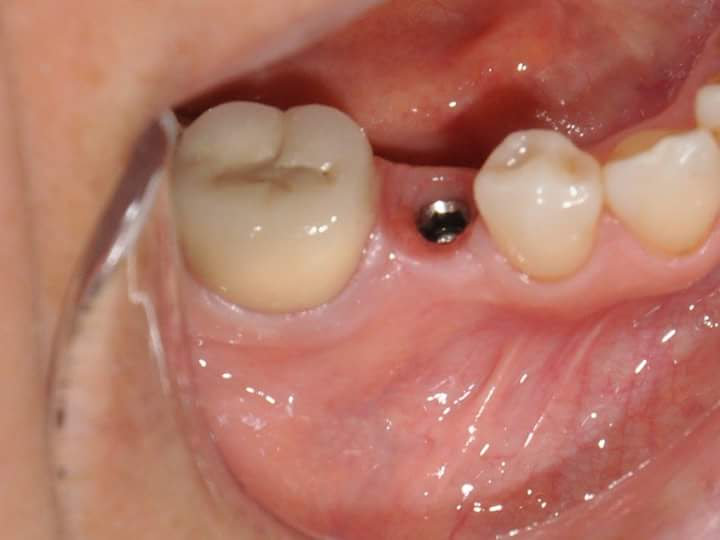
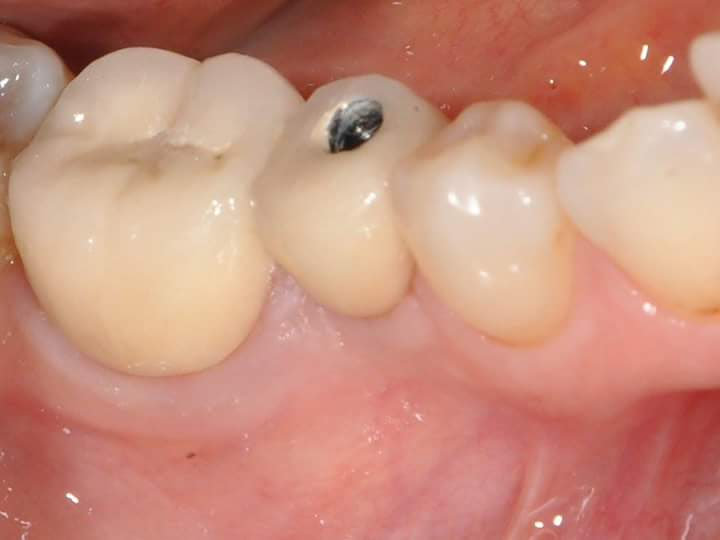
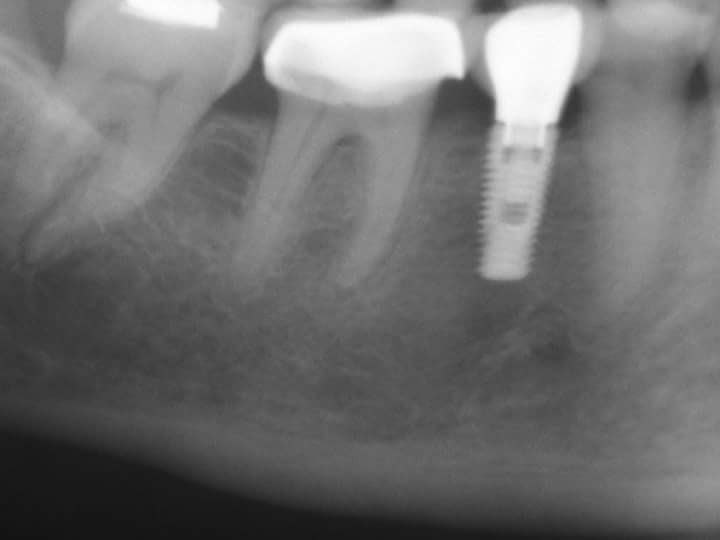
The following is a general overview of the steps involved in the dental implant procedure:
1. Initial Consultation –
The first step is to schedule an appointment with a dental professional who specializes in dental implants. The dentist will evaluate your dental and medical history, take X-rays, and perform a comprehensive oral exam. If you are a candidate for dental implants, the dentist will create a customized treatment plan based on your specific needs.
2. Dental Implant Placement –
During the surgical procedure, the dentist will place a small titanium post into your jawbone. The implant acts as a replacement root for the missing tooth and will fuse with the surrounding jawbone tissue in a process known as osseointegration. You may be given local anesthesia to numb the area, or in some cases, general anesthesia may be used.
3. Abutment Placement –
Once the implant has integrated with the surrounding jawbone, the dentist will place an abutment, which is a connector piece, on top of the implant. This piece connects the implant to the crown or dental prosthesis, which will be placed at a later stage.
4. Crown or Prosthetic Placement –
The next step of the dental implant procedure involves placing the crown or prosthesis onto the abutment. The dentist will take impressions to create an exact mold of your mouth and create the artificial tooth or teeth. This step may take a few weeks, but temporary restorations can often be placed while the permanent ones are being created.
5. Follow-up appointments –
After the dental implant procedure, it is important to attend follow-up appointments with your dental professional to ensure the implant has properly integrated and to identify if there are any problems that need to be addressed.
While the overall timeline of dental implant treatment will vary depending on the patient’s specific needs and condition, the process typically takes several months to complete.
Post-Implant Care
Proper post-implant care is essential to ensure the longevity and success of the dental implant. The patient must follow the instructions provided by the dentist, which typically includes the following:
1. Careful oral hygiene: The patient must maintain proper oral hygiene by brushing and flossing regularly to prevent any infections.
2. Avoid smoking and tobacco products: Smoking and tobacco products can impede the healing process and increase the risk of implant failure.
3. Eat a healthy diet: A healthy diet has a positive impact on oral health and helps maintain the implants’ longevity.
4. Attend regular dental check-ups: Regular dental check-ups are essential for the longevity of the implants. The dentist can monitor the implants’ progress and suggest any necessary changes.
Cost Of Dental Implants In India
Single Tooth Implant (per tooth)- $350-$700
Single Tooth Implant With Crown (Per tooth)- $400- $900
Cost Of Dental Implants In US
Single Tooth Implant (per tooth) – $1500 – $2000
Single Tooth Implant With Crown (Per tooth) – $4000-$5000
Conclusion
Dental implants are an excellent choice for individuals looking for a long-term solution to missing teeth. They provide a natural and comfortable solution. While the procedure may be expensive, the benefits outweigh the drawbacks. It is essential to consult your dentist to determine whether dental implants are the right choice for your dental health.

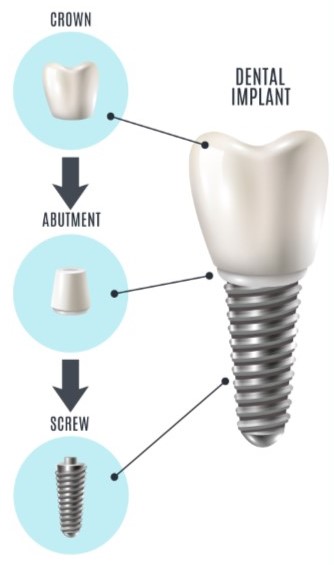

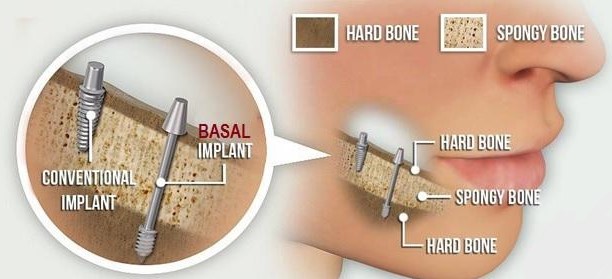
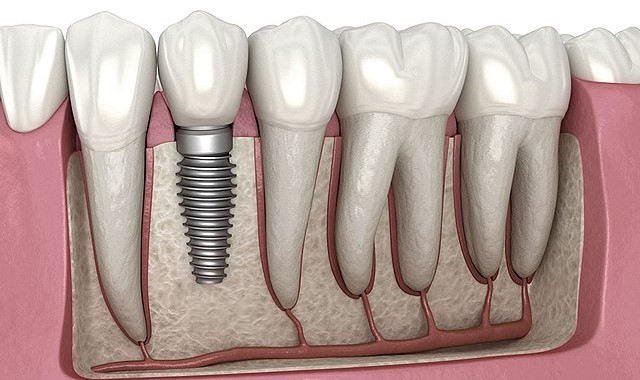
3 thoughts on “COMPLETE GUIDE TO DENTAL IMPLANTS: EVERYTHING YOU NEED TO KNOW FOR A PERFECT SMILE!”